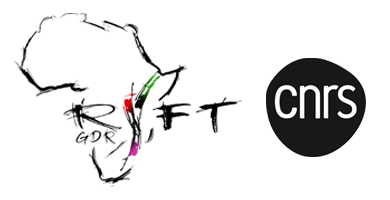Calls for projects
Mobility Grant 2023
Nine additional applications were received n September and were evaluated and arbitrated at the Scientific Committee meeting on September 5, 2023.
The committee selected 3 applications based on the quality of the project, the existence of co-financing and the interdisciplinarity of the subject, for a total sum of 6 k€.
The 3 winners are:
- Behailu Habte ENDALEW
- Samuel LABBE
- Misganaw Gebremichael WOLDETSADIK
The GDR Rift has launched its 3rd call for Student Mobility (2023 edition) to promote student exchange and training.
The GDR Scientific Committee evaluated and refereed the 26 received applications during its session, 4 April 2023. The committee selected 10 applications based on the quality of the project, the existence of co-financing and the interdisciplinary nature of the subject, for a total sum of 12 k€. Following the withdrawal of one of the winners, the 9 funded projects are as follows:
- Tomas Getachew BEDANE
- Bisrat Lema BERGENE
- Edwin DE JAGER
- Rose DE LAMBERTERIE
- Sophy Jepkemoi KIPWONI
- Louis GAUDARÉ
- Raphaël HANON
- Olivier SCANCARELLO
- Tefera TAREKEGN BAYU
The 2023 selection
Behailu Habte Endalew
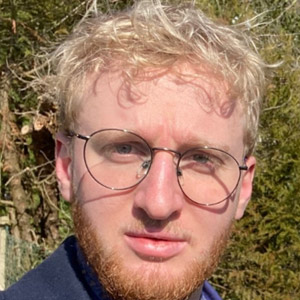
Samuel Labbé (Laboratoire d’Anthropologie Sociale, Paris)
I’m a PhD student in Social Anthropology at the Laboratoire d’Anthropologie Sociale. The laboratory is affiliated with EHESS, CNRS and Collège De France. I’m starting my third year of doctoral studies after several stays in 2022 and a long fieldwork in Rwanda from November 2022 to September 2023.
My research focuses on animal husbandry practices in Rwanda, the uses of milk and the transformation of clan logics. Indeed, initial field data suggest that social structures in post-Tutsi genocide Rwanda are in the process of being reconfigured.
It remains to be seen where, how, in what way and with what intensity these processes are taking place.
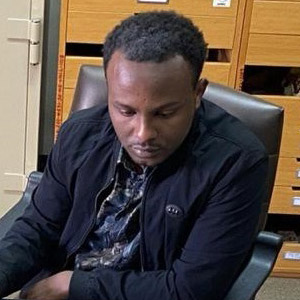
Misganaw Gebremichael Woldetsadik
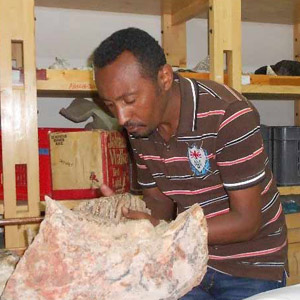
Tomas Getachew Bedane (PALEVOPRIM)
Tomas Getachew is currently a PhD student at the University of Poitiers, France. He studied his undergraduate program at Addis Ababa University (AAU) and received his bachelor’s degree in Earth Sciences in 2010. After his initial training in Earth Sciences, He has been working at the Authority for Research and Conservation of Cultural Heritage (ARCCH) as a curator of paleontology since 2011 where he was involved in projects that focus on human evolution and its environmental context in the field and the laboratory. He has more than 10 years’ experience in curating paleontological collections. He’s helped generate a different method in fossil curation activities.
In 2014, while working at the ARCCH, he received sponsorship to pursue a master’s degree at Addis Ababa University (AAU). For his MSc thesis, he studied the ‘evolutionary history and dietary adaptation of fossil elephants’ from the Shungura Formation (Lower Omo Valley, Ethiopia), under the supervision of Dr. Jean-Renaud Boisserie (CNRS). His MSc research at AAU demonstrated the potential of studying the elephant fossil record to better understand the paleoenvironments of eastern Africa and has formed the basis of his combined (second) MSc and PhD research at the University of Poitiers. There, he completed his second MSc on ‘the ecology of mega-herbivore fossils through dental wear analysis (microwear and mesowear)’ under the supervision of Drs. Jean-Renaud Boisserie and Gildas Merceron, where he learned to conduct 3D microwear textural analysis on teeth.
Tomas is interested in exploring the relationships between morphological evolution and dietary behavior of mega herbivores (proboscideans; elephants and their relatives) through dental wear analyses (dental microwear texture analysis and mesowear) as well as isotope study for a better understanding of their responses to various environmental contexts and changes.
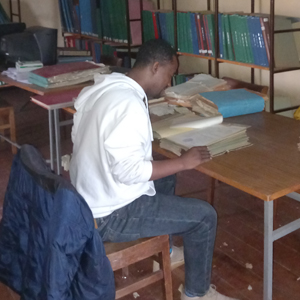
Bisrat Lema Bergene (Université d’Aix-Marseille)
My name is Bisrat Lema Bergene. I am from Ethiopia. I am currently a PhD student in history at Aix-Marseille University. I am doing my thesis project on ‘Approaching Ethiopian history through untapped Archival sources: Addis Ababa and local governance in Southern Ethiopia, c. 1941 to 1974’ under supervision of Professor Henri MEDARD (IMAF) and co-direction of Dr. Pierre Guidi (Université de Paris-Cité, Ceped, IRD). In it, I will study the nature of the relations between the central state and the southern region of the Ethiopian Empire; as the relationship between the central state and the different regions of the Ethiopian empire is a central issue in the contemporary history of Ethiopia. This will be done through the systematic use of previously untapped archival collections from the Ministry of Interior (National Archives and Library Agency) and the Ministry of Agriculture (Wolde-Meskel Center, Institute of Ethiopian Studies/Addis Ababa University). In many ways, expanding our knowledge of these relationships can help us better understand the roots of the 1974 revolution and the political platform of the current government, as well as the contemporary and fierce, opposition to the latter.
During my prior studies, I hold an MA degree in History from Addis Ababa University and BED degree in History from Bahir Dar University. Professionally, I am very acquainted with working in higher education institutions both as an academic as well as research staff. I have worked in Mizan-Tepi University department of History and Heritage Management from 2007 to 2015. Since 2015, I have been working in Wolaita Sodo University, in the position of Assistant professorship. Besides I have participated in different research-oriented projects and conducted fieldwork in different parts of Ethiopia with various scholars out of which I produce and co-produce some papers for publications as well as conferences.
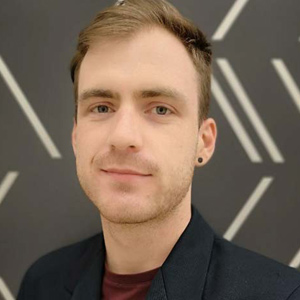
Edwin de Jager (Université de Cambridge)
Edwin de Jager is currently a PhD student in the Department of Archaeology at the University of Cambridge, funded by the Harding Distinguished Postgraduate Scholarship Programme.
As part of his thesis work, he is developing an atlas of brain imprints on the inner surface of the cranial vault of current and fossil hominids. Edwin is passionate about using modern imaging methods used to study and teach human anatomy and evolutionary science.
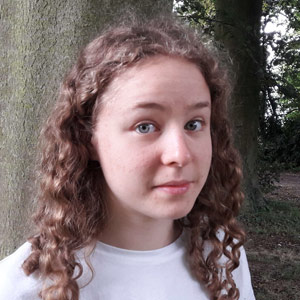
Rose de Lamberterie (AgroParisTech, Paris)
In my final year of the AgroParisTech engineering program, specializing in Agricultural Development, I’m working with Pierre Vandôme on a research internship as part of the “Biodiversity, agroforestry practices and sustainability of production systems in cocoa and coffee regions” project.
This research project, supported by AgroParisTech and the Joint Research Centre (European Commission), focuses on the conditions under which farmers in tropical regions manage to implement efficient practices, both in terms of wealth creation and income distribution, and in terms of biodiversity maintenance. It will contribute to ongoing debates on how to regulate agricultural markets, which are essential for low-income countries but which, at the same time, are likely to accelerate deforestation and biodiversity erosion. To this end, development dynamics are observed in four study areas (located in Cameroon, Côte d’Ivoire, Kenya and Colombia).
Our research field is located in Kenya, in the coffee-growing region of the Aberdare chain. The aim is to understand the dynamics of production units, to characterize their functioning and socio-economic performance. This sheds light on why farmers are developing certain practices (agroforestry, agroecology) to increase added value, employment and household income, while preserving biodiversity and carbon stocks.
Relying on the agrarian diagnosis method, this is an in-depth 6-month field study based on observations (agrarian landscapes, farming practices), historical interviews with elderly farmers and technico-economic interviews with active farmers.
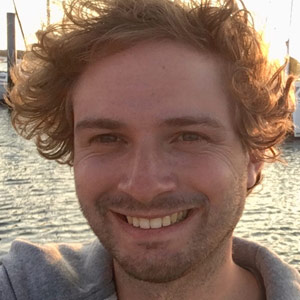
Louis Gaudaré (Géosciences, Rennes)
I’m a PhD student in Geosciences Rennes working on the Dynamics of the Okavango rift system (Botswana) to understand the coupling between geodynamics, climate, and their impact on the ecosystem.
My mobility concerns a collaborative project between four laboratories: Geosciences Rennes, LETG Rennes, the Okavango Research Institute (Botswana University) and ITES Strasbourg.
After two field missions in Botswana in 2021 and 2022, a third mission is planned in June and July 2023, with the help of a GDR Rift funding. The objective of this mobility is to collect field data for my PhD thesis and to do a one-month internship to collaborate with researchers from the Okavango Research Institute (ORI, University of Botswana). During this mobility, I will collect data from GNSS stations installed during previous missions, refine the geomorphological mapping established by the remote sensing analysis and collect reference points to calibrate the InSAR analysis. Collaboration with ORI researchers, specialists in Okavango Delta ecology and hydrology, will consist in analyzing the impacts of regional geodynamics on the Okavango Delta. In particular, we will analyze the ORI hydrological database to assess how hydrological processes and ground deformation are related to each other in the Okavango Delta.
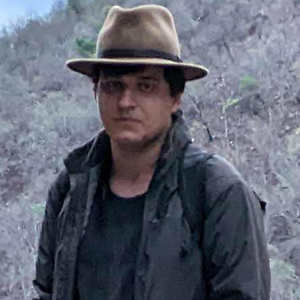
Raphaël HANON (HNHP, Paris)
My research focuses on the subsistence behaviors of Plio-Pleistocene hominins, in particular the role of hunting, scavenging and the use and consumption of animal resources during the evolution of the human lineage.
For this, I study bone assemblages mainly from South Africa and Angola. I am also undertaking field research in Zimbabwe and Botswana.
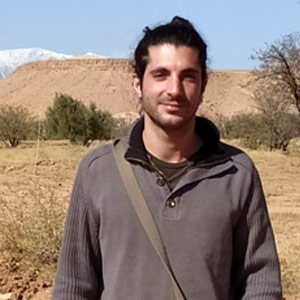
Olivier Scancarello (CEPAM, Université Côte d’Azur)
M.A. (2019) and post graduate School of Archaeology (2021) in Prehistory at Sapienza University of Rome, Olivier Scancarello is currently a doctoral student in prehistoric archaeology at Université Côte d’Azur and the CEPAM UMR 7264 laboratory in Nice (France). Since the Master he developed an interest in African archaeology and participated in fieldwork both in Africa and Europe.
His PhD project is focused on the lithic technological analysis of Holocene sites from the Ethiopian Afar region. His research interests focus on lithic technology and use as a means to explore the timing and the modalities of the transition from hunter-gatherer societies to pastoral communities in arid zones of Africa, as well as the cultural responses to environmental changes, population dynamics, and mobility patterns.
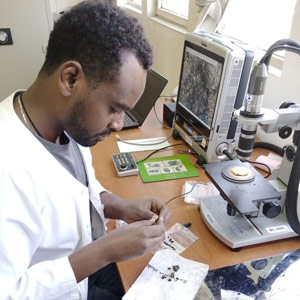
Tefera Tarekegn Bayu (CEPAM, Université Côte d’Azur)
I am a Ph.D. student at the Université Cote d’Azur, Nice (France) in the Culture and Environment: Prehistory, Antiquity, Middle Ages (CEPAM) laboratory. In the context of my Ph.D., I am researching the interactions between humans and their environments from the Late Pleistocene to the Holocene, which I began to study during my Master’s which focused on the charcoal from 10 sites in the Bale Mountains in Ethiopia. My Ph.D. revisits the Bale material by combining it with archaeological charcoals collected from other sites in southern Ethiopia using higher resolution microscopy and current comparative reference collections, but it also goes beyond previous studies by putting a special emphasis on gathering and studying comparative reference wood collections from southwest Ethiopia.
For this study, the Bale Mountains material will be combined with archaeobotanical remains, specifically anthracological data from the Middle Stone Age site of Gotera (PI: E. Spinapolice) and the Middle Holocene site of Kumali (PI: E. Hildebrand), to reconstruct comprehensive pictures of human-environmental interaction in southern Ethiopia during late Pleistocene and Holocene epochs. The samples are being taxonomically identified in the paleobotany lab at the CEPAM in Nice and the archaeobotany lab of Goethe University Frankfurt using reference collections of wood already collected in southwest Ethiopia by the Frankfurt University team. The thesis is under the supervision of Isabelle Théry-Parisot (Ph.D., HDR,) from CEPAM, Alexa Höhn (Ph.D.) from Goethe University Frankfurt, and Lamya Khalidi (Ph.D.) from CEPAM).
Reminder: The mobility grant can be used to participate in training courses, thematic schools, field trips, or visiting laboratories. The applicant must submit the details of the requested budget associated with their project. Upon award, the grant can only be used for travel, fieldwork, and mission expenses and can only be used for the applicant. The grant must be spent before the end of the financial year, beginning December 2023. The allocated stipend is subject to financial statements. We ask the beneficiaries for written feedback (one-page report + summary of expenses) and a small podcast presentation for the GDR website.
